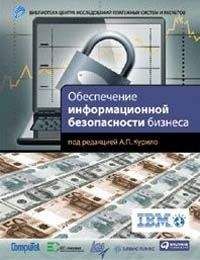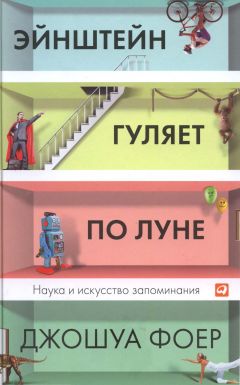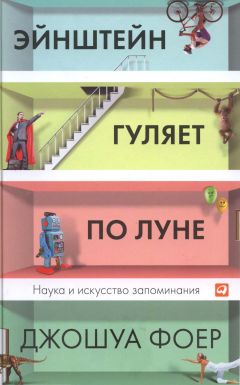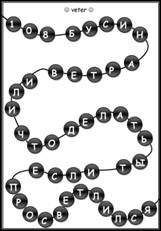Карл Оноре - Без суеты: Как перестать спешить и начать жить
22
James Meek, “Britain Urged To Ban GM Salmon,” Guardian, 4 September 2002.
23
Eric Schlosser, Fast Food Nation: The Dark Side of the All-American Meal (New York: Penguin, 2001), p. 114.
24
Adam Sage, “Au Revoir to the Leisurely Lunch,” Times, 16 October 2002.
25
См.: Eric Schlosser, Fast Food Nation, pp. 196–99.
26
Данные по артишокам см.: Anna Muoio, “We All Go to the Same Place. Let Us Go There Slowly,” Fast Company, 5 January 2002.
27
О свойстве углеводов из якона см.: National Research Council, Lost Crops of the Incas: Little-Known Plants of the Andes with Promise for Worldwide Cultivation (Washington, DC: National Academy Press, 1989), p. 115.
28
Опрос журнала Fast Company.
29
Visser, Rituals of Dinner, p. 323.
30
Sage, “Au Revoir.”
31
Интервью с Карло Петрини см.: New York Times, 26 July 2003.
32
Social and Economic Change and Diversity in Rural England, 2004, Rural Evidence Research Centre.
33
О политике управления городским временем см.: Jean-Yves Boulin and Ulrich Muckenberger, Times in the City and Quality of Life (Brussels: European Foundation for the Improvement of Living and Working Conditions, 1999).
34
Борьба с шумом в Европе см.: Emma Daly, “Trying to Quiet Another City That Barely Sleeps,” New York Times, 7 October 2002.
35
Дональд Эпплярд, профессор по городскому дизайну из Университета Калифорнии (Беркли), начал исследования по этой теме в 1970 г.
36
Longman P. J., “American Gridlock,” US News and World Report, 28 May 2001.
37
Charles Siegel, Slow Is Beautiful: Speed Limits as Political Decisions on Urban Form (Berkeley: Preservation Institute Policy Study, 1996).
38
Guy Claxton, Hare Brain, Tortoise Mind: Why Intelligence Increases When You Think Less (London: Fourth Estate, 1997), pp. 76–77.
39
Там же, с. 4.
40
Результаты обследования 2000 человек из разных штатов на протяжении пяти лет см.: Psychosomatic Medicine 49, 1987.
41
Robert Levine, A Geography of Time: The Temporal Adventures of a Social Psychologist (New York: Basic Books, 1997), pp. 33–34.
42
Исследование Harris Interactive Service Bureau для Yoga Journal, 2003.
43
Edward Abbey, The Journey Home: Some Words in Defense of the American West (New York: Dutton, 1977), p. 205.
44
Письмо в Health101.org от Филипа Александера, доктора медицины, главы университетской больницы при медицинском факультете Техасского университета.
45
James Gleick, Faster: The Acceleration of Everything (New York: Random House, 1999), p. 85.
46
Исследование репродуктивности проведено в 2002 г. Дэвидом Дансоном из Национального института экологии и здоровья в Северной Каролине (National Institute of Environmental Health Sciences in North Carolina) по данным из семи европейских городов.
47
Данные опубликованы в 1998 г. Британской медицинской ассоциацией (British Medical Association).
48
Исследование 1994 г. проведено специалистами из Чикагского университета. Данные приводятся в книге James Gleick, Faster: The Acceleration of Everything (New York: Random House, 1999), p. 127.
49
Judith Mackay, The Penguin Atlas of Human Sexual Behavior (New York: Penguin Books, 2000), p. 20.
50
Цит. по: Val Sampson, Tantra: The Art of Mind-Blowing Sex (London: Vermillion, 2002), p. 112.
51
Melinda Forthofer, Howard Markman, Martha Cox, Scott Stanley and Ronald Kessler, “Associations Between Marital Distress and Work Loss in a National Sample,” Journal of Marriage and the Family 58 (August 1996), p. 597.
52
Слова Бенджамина Франклина приводятся в книге John De Graaf, David Wann and Thomas H. Naylor, Affluenza: The All-Consuming Epidemic (San Francisco: Berrett-Koehler, 2001), p. 129.
53
Предсказание Джорджа Бернарда Шоу изложены в докладе, представленном Бенджамином Клайном Ханникатом на Симпозиуме о причинах и последствиях перегрузки (Symposium on Overwork: Causes and Consequences in Baltimore MA, 11–13 March 1999).
54
Dennis Kaplan and Sharon Chelton, “Is It Time to Dump the Forty-Hour Week?”, Conscious Choice, September 1996.
55
De Graaf, Affluenza, p. 41.
56
По данным Международной организации труда и Организации за экономическое сотрудничество и развитие, рабочая неделя американца постепенно удлинялась с 1980 по 2000 г., затем слегка сократилась в связи с экономическим упадком.
57
Исследования представлены в книге под ред. John De Graaf, Take Back Your Time: Fighting Overwork and Time Poverty in America (San Francisco: Berrett-Koehler Publisher, 2003). Также см.: http://www.timeday.org/btbyt.asp, раздел Handbook.
58
Общенациональное исследование сверхурочных часов, проведенное в 2002 г. Британским министерством промышленности и торговли совместно с журналом Management Today.
59
Matthew Reiss, “American Karoshi,” New Internationalist 343, March 2002.
60
По данным исследований исследовательского центра Ipsos-Reid за 2002 г.
61
Данные о продуктивности одного часа работы основаны на статистике из отчета Международной организации труда за 2003 г.
62
См.: Andrew Oswald, “Are You Happy At Work? Job Satisfaction and Work-Life Balance in the US and Europe,” Earwick WBS Event, November 2002.
63
Robert Whymant, “Bitter Legacy as Japanese Firms Lay Off Thousands,” Times Online, 4 May 2002.
64
По данным Международной организации труда.
65
Анализ CSA (Conseil Sondages Analyses) для журнала L’Expansion (September 2003).
66
Asako Murakami, “Work Sharing Solves Netherlands’ Woes,” Japan Times, 18 May 2002.
67
Общенациональное исследование сверхурочных часов, проведенное в 2002 г. британским министерством промышленности и торговли совместно с журналом Management Today.
68
Исследование Yankelovich Partners, Inc.
69
Отчет за 1997–1998 гг. профсоюза работников сферы коммуникации и энергетики (Communications, Energy and Paperworkers Union), Канада.
70
Bill Munck, “Changing a Culture of Face Time,” Harvard Business Review, November 2001.
71
Anne Fisher, “Exhausted All the Time? Still Getting Nowhere?” Fortune, 18 March 2002.
72
Jane E. Brody, “New Respect for the Nap, a Pause That Refreshes,” Science Times, 4 January 2000.
73
Walter Graebner, My Dear Mister Churchill (London: Michael Joseph, 1965).
74
Josef Pieper, Leisure: The Basis of Culture (South Bend, IN: St. Augustine’s Press, 1998), p. 141.
75
Franz Kafka, The Collected Aphorisms (London: Syrens, Penguin, 1994), p. 27.
76
Данные о вязании собраны Советом по рукодельным ремеслам (Craft Yarn Council of America).
77
Cecilia Howard’s Cloudwatcher’s Journal на www.morelife.org/cloudwatcher/cloudwatch_112001.html.
78
Grete Wehmeyer, Prestississimo: The Rediscovery of Slowness in Music (Hamburg: Rowolth, 1993).
79
Uwe Kliemt, “On Reasonable Tempi,” cм.: http://www.tempogiusto.de/.
80
Там же.
81
Richard Elen. “Ludwig van Beethoven – Symphony No. 9 Op. 125,” 13 March 2001. См.: http://avrev.com/music-disc-reviews.
82
Norman Lebrecht, “Turn It Down!” Evening Standard, 21 August 2002.
83
Samantha Levine, “Up Too Late,” US News and World Report, 9 September 2002.
84
Hannah Beech, “Asian Schools Go Back to the Books,” Time Magazine, 9 April 2002.
85
John Crace, “Heaven and Helsinki,” Guardian, 16 September 2003.
86
Stephen Kern, The Culture of Time and Space, 1880–1918 (Cambridge, MA: Harvard University Press, 1983), p. 110.




